Latest Blogs
Seasonal Allergies: Symptoms, Causes, and Treatment
The constant sneezing, running nose, congestion, etc. have just begun with this phase; and you are just one among hundreds of those who suffer from seasonal allergies. Just like other kinds of allergies, when the immune system is not able to grasp the external environmental changes and ends up overreacting to the outdoor allergens during spring, summer or fall, it leads to seasonal allergies i.e allergic rhinitis, or in layman’s terms hay fever. One can experience seasonal allergies in more than one season which can also be determined by where you live. How can I get my allergy diagnosed? While there might not be any certain treatment for such seasonal allergies, one can consult with the doctor for ease with the bothersome symptoms. If the symptoms are troublesome, the doctor might refer to an allergy test for better treatment. They will check the nose, ears, or throat. The allergy specialist can also conduct a skin test by pricking the surface of the skin with the allergen to understand the allergy and the cause, or may also order a blood test. Another resource to find out the cause of the suffering can be to opt for some of the best health checkup packages. Though the best cure would be to avoid contact with allergens that can be triggering, it may not always be possible. While there are certain medications such as over-the-counter decongestants and antihistamines or nasal sprays available for the cure, you can also get a health check-up done, the price for full medical checkup has now become affordable too. Some people may develop allergies to specific food items too. Book an allergy test- Food panel here. Symptoms to watch out for While a few may suffer from mild symptoms, some others can have severe allergic reactions, a few common ones include: Congestion Itchy or watery eyes Constant sneezing Runny nose Itchy throat or ear canals Sometimes headache, wheezing and coughing or the formation of dark circles under the eye can also be the signs of allergic reactions. Causes behind seasonal allergies While we now know the symptoms to watch for, it is also important to understand what might be causing these. Symptoms of seasonal allergies vary from one season to another just like their triggers. We catch allergies when the immune system takes an airborne particle to be dangerous; in order to prevent and respond to the particle, the body system releases chemicals called histamines in the bloodstream which are said to produce the symptoms of allergy. So when the pollens or tiny dust particles or grains are present in the air, the body’s defence mechanism goes for a toss, thereby giving itchy throat, runny nose, watery eyes, etc. While in the summer season, the hay cuttings and grasses are responsible, in fall, the plants drop their pollen, the leaves shed, making it one of the worst seasons for allergic sensitive people. Winter comes as a respite for such people unless they also react to dust mites, mould, cockroaches, etc. staying indoors. Pollen is found highest during the morning, whereas trees, grass, and ragweed pollen are more common during warmer days or colder nights. They increase when the day is windy. Apart from pollen, grass, mould, smoke, insect bites or sting, chlorine in swimming pools, etc. can also cause allergies. What treatments work? In case of mild symptoms, one can also take precautionary basic steps, such as using air purifiers, staying indoors, keeping the windows covered, wearing a mask or scarf when stepping outside etc. The year-round allergic rhinitis can best be treated by avoiding getting in contact with the allergens as much as possible. If you are unable to avoid such allergens, there are other cures available such as going for over-the-counter medicines as mentioned, in severe cases; however, the expert may suggest allergy shots, which are basically immunotherapy to desensitize the immune system to these foreign particles. While the treatment works, most often these unnatural ways can have side effects such as dizziness, confusion, or drowsiness throughout the day. Some other effective steps can be- Stay indoors in the peak allergies season: You can take precautionary medicines to ease the symptoms, or if possible best would be to stay indoors. Avoid triggers: Wearing a mask if venturing outside works; avoid mowing lawns or other gardening activities. The best time to venture outside is after rains when the pollen from the air is clean, and the worst time is during the early morning when the pollen counts are highest. Maintain clean indoors: If you have forced temperature maintenance in your house, like air heating or cooling, it is advisable to use high-efficiency filters and call for regular maintenance and cleaning of these. Using a highly efficient particulate air filter in the bedroom and cleaning the house with a vacuum equipped with this HEPA filter also works. Cure for the itchy and runny nose: A quick cure to get rid of the nasal congestion is to rinse it with saline solution. This inexpensive cure can help get rid of the mucus and allergens from the nose, thus giving it relief from the constant itches and irritation. A few not-so-common natural remedies: Also include quercetin, a nutrient that can be found in onions, apples, and black tea that is effective in blocking histamines. Another cure is stinging nettle leaves, using dried and cold leaves for treating allergies and calming the affected area, while some also suggest going for acupuncture, though little evidence is there that supports the same, nonetheless these are all inexpensive and harmless treatments that can be opted for carefully. Symptoms of seasonal allergies can be irritating and uncomfortable. While much of these can be avoided, visiting and taking an expert’s opinion never hurts, they will help chart out the correct treatment plan and point out effective steps that can help ease the allergy and provide relief. There might not be any permanent solution, but these allergies can certainly be curbed following prescribed medications or home remedies as needed.
Do Some Food Items Make You Go Tingly and Itchy? It Can be a Food Allergy
That itchiness on your body after eating could be telling you something Some people often find themselves having certain digestive problems, swollen faces, itching, and rashes after consuming a certain kind of food; this is mainly because their immune system reacts to certain kinds of food. Food allergy is basically the immune system reacting adversely as soon as you eat a certain kind of food. Even a tiny bite of any of these allergy-causing food items can trigger mild to severe symptoms, in certain cases; this could even lead to anaphylaxis, a life-threatening reaction to allergic food consumed. The immune system mistakenly identifies certain components or proteins in the food as harmful to consume and releases effective measures accordingly, like chemicals such as histamine that causes inflammation. Check with a simple test if you could be allergic to certain foods Some people often confuse a simple food allergy with food intolerance, which is a more commonly seen reaction to food items, but it, in no way, involves or affects the immune system and is a far less serious condition. Food intolerance can simply be detected with a health test. Book here. Particularly speaking of the Indian territory, there are low cases and incidences of allergy roughly up to 3% owing to the strong Indian genes that shield us from asthma, eczema, and other allergic sniffles. Talking about the western culture, food allergies affect almost 4% of adults and nearly 5% of children in the United States. Common signs and symptoms include: Itching Swelling around the lips, face, and mouth Nasal congestion Stomach upset, vomiting, diarrhea Dizziness or light-headedness Blood pressure drop Rashes or hives Tingling sensation in the mouth While these symptoms can range from mild to severe, these are some of the most common ones to watch out for. They affect every person differently, for some it may be an instant reaction, but for some, it might even take a few hours, similarly, for some, it might just be an uncomfortable feeling, but for others, it might be severe as to a life-threatening situation. Triggering food, to be careful around: Eggs Fish Wheat Milk Peanuts Soybeans Nuts Sea food (lobster, shrimps etc.) These account for the eight most common food allergy-causing items. However, there are certain other items as well that could lead to adverse reactions, these include: Garlic Fruits like banana, peach kiwi Sesame seed Avocado Coffee Chamomile etc.. Are there any tests for diagnosing food allergies? Yes! If you notice any of these symptoms then, it is best to take the advice of a food allergist or refer a doctor for the same. They will carry out some tests, such as Dietary review, to see what and when you have eaten. Skin prick test, to prick a needle with a tiny amount of suspected food to monitor any reaction. If you get a red, itchy bump at the injection site, it usually means you are allergic to the food. Blood test, to look for the presence of antibodies, specific to protein, to indicate any allergy present. This test checks for substances called IgE antibodies in the blood. IgE antibodies are made in the immune system when you are exposed to an allergy-causing substance. There is another method, which can help understand if a person really has any food allergy, where a physician checks and supervises in a closed environment, by giving the person suspected food allergen in gradually increasing quantities to monitor and chalk out the possibility of psychological reaction to food. This is also called the Oral challenge test. Your allergist will provide immediate treatment if there is a reaction. Understand, if you are at risk! You may be more prone to food allergies if you have a family history of asthma, eczema, hives, hay fever, etc. If you are allergic to certain kinds of food already, there are high chances and risk of you developing an allergy to some other similar food as well. They are more common in children, but with age, some of them outgrow these, while kids who suffer from nuts or specific sea food allergies, might have them lifelong as well. How to treat food allergies? Once you develop an allergy to a certain food item (it can be a spice, a condiment too!), the safest option is to avoid it. Be careful and aware about what you are eating and drinking Carry emergency epinephrine, if you are at risk. Oral immunotherapy is when the affected person is given an increasing amount of the allergen so that the body gets used to it, and thereby increasing the threshold of adversity. Eg:- Palforzia for peanut allergy. Epicutaneous immunotherapy, similar to oral immunotherapy, is when a protein from a certain allergic food is delivered through a skin patch. The patch is replaced daily with increasingly larger amounts of protein. Notify in advance at restaurants or cafes if you have any food allergy, the staff members even ask and at times the menu explicitly mentions notifying them of the same, so don’t be reluctant here. While being careful and agile is the only way out for most situations, certain changes in the lifestyle can also go a long way in taking care of your food allergies. If you wish to continue enjoying your favorite food, preheating and then cooling food at times help remove the protein causing allergy, peeling fruits before eating them, so that they get rid of the peel-containing proteins. Little precautions, awareness, and smartness, can let you enjoy your taste buds.
Food allergy Vs. Food Intolerance: What's The Difference?
Ever had gastric discomfort after eating a particular food item and claimed it as a food allergy? Then, you just need to rethink! Discomfort due to a food item may mean you are sensitive or intolerant to that food, and not allergic. Feel perplexed what is the difference between food allergy and food intolerance? And more importantly, should you know it? Well, yes. Both these conditions are different and you must know whether you are allergic or intolerant/ sensitive to food since they have different symptoms and how you need to manage it will also vary. Did you know there is a simple test that can check food intolerance? Book a food intolerance test and know for yourself. Food allergy Vs. Food intolerance Food allergy means your body identifies a certain substance in a food item as an intruder and reacts by making antibodies against it. This is an immune system response. On the other hand, food intolerance is a relatively simpler condition where your body is unable to digest a certain food. It might occur due to a lack of enzymes that are needed to breakdown that food (or a particular substance in that food). Your immune system is nowhere involved in this. Symptoms and their significance Food intolerance results in gut-related symptoms including bloating, stomach ache, constipation, nausea, etc. Also, the symptoms are usually dependant on the amount of food eaten. In case you are intolerant to peanuts- the more peanut you consume, the more discomfort you experience. This implies if you are intolerant to a food item you really relish, you can restrict the amount eaten and enjoy the taste with very mild or even no symptoms at all. Food allergy causes symptoms like any other allergy which may include skin rashes, itching, swelling, etc. in addition to gut problems, and can even lead to a more severe reaction (called anaphylaxis),. This severe reaction can cause a drop in blood pressure, loss of consciousness, etc., and needs immediate medical care. If you are allergic to a food, even consuming the smallest amount of that food (or at times, even touching the food item) can give you the symptoms. So you need to completely take out the food from your diet. Food allergy or food intolerance: Which is more common? Food intolerances are more common than food allergies, as per the British Allergy Foundation. Speaking of food allergy, while any food can be a trigger, some of the common triggers for a food allergy include the following: Triggers in children: -Eggs -Milk -Peanuts Triggers in adults: -Peanuts and tree nuts -Fishes -Fruit and vegetable pollen Can food allergies go away on their own? Many people with food allergies wonder if their condition is permanent. There is no definitive answer. While allergies to milk, eggs, wheat, and soy may disappear over time, allergies to peanuts, tree nuts, and fish can stay lifelong. It is noteworthy that children can outgrow food allergies to milk and eggs. Can food allergies develop as an adult? Although most food allergies appear in people when they are young, they might develop in adults as well. The most common food allergies that affect adults are shellfish, fish, and peanuts. Some adults might ignore symptoms such as vomiting or diarrhea as food poisoning. Make sure to pay close attention to symptoms and don’t miss the crucial hints. It can get people at risk if they continue to eat the food. Tips to prevent food reactions Know your triggers and avoid them: The best way to avoid getting the symptoms is to know what foods you are allergic or intolerant to. Now how do you know it? Usually, most people only know it after repeated exposure and developing symptoms. If you doubt having a food reaction, you can maintain a food diary, watch back and correlate your meals and foods with days you had got symptoms. If you are allergic to a food, completely avoid it. Get yourself tested: A food intolerance test is an easy way to know if you could be intolerant to a certain food. If you know it, you can skip eating that and get rid of the discomfort. A little caution while eating out: If you have to eat out, make sure to ask the staff that no item in your order has any of the substances you are sensitive to. The cutlery should be also clear of any food remnants. Check product labels carefully: While getting pre-packed foods, make sure to double-check the product label. Even if it is your repeated purchase, recheck labels as the manufacturers might add new ingredients in the old formulations. Keep an action plan ready: Consult your doctor on what you need to do in case you get exposed to a food substance you are allergic or intolerant to. He might prescribe medicines to take in case of any health emergency (related to food allergy, food intolerance has very less chances of needing emergency care).
Food Intolerance: No, it’s not food allergy
We are what we eat! Our health is a combination of a number of external and internal factors. Genetics and environment work in synergy to make us who we are. One of the most popular factors, and perhaps the most significant one, is food. In the age of instant over sharing and ensuring aesthetic over quality, we often see but don’t really understand what is on our plate. Most people are aware of common food allergies and how to deal with them, regardless of whether they suffer from it or not. Food intolerance on the other hand isn’t a widely popular or understood concept, as it should it. One may think that dish was under cooked, or a spice overpowered the whole dish, or the food contained ‘something that didn’t sit well with me’ and attribute to it as a cause of a physical reaction of discomfort after eating certain foods. Seldom do people realize that they may be intolerant. Food Allergy and Food Intolerance: The DifferenceMany think that food allergy and food intolerance are same, but actually they are not. Food Allergy is caused due to an immune reaction towards a specific food protein (allergen). Food intolerance is actually a digestive system response to certain foods. Food Allergy is an acute immediate reaction, whereas food intolerance is a chronicle reaction. For example, lactose intolerance is a condition where one’s body cannot successfully digest milk. It does not make a person allergic to all milk byproducts. Trends in India Metropolis Healthcare is one of the first labs to conduct a detailed research study using the Protein Microarray Biochip Test for Food intolerance. Using the microarray biochip, 220 food items are embedded on the chip and fluorescence Elisa is used for reporting. The data collected by Metropolis was analyzed age-wise and food item wise and the Percent positivity were calculated. Cut off levels were set, so that based on the values generated from the test researchers can then identify whether the food tolerance for the patient was normal, borderline or elevated. Only patients who had elevated results were retested after a specified amount time recommended by the doctors. The final results of the test found that most women, men, and children are intolerant to cow milk and wheat. Testing and ManagementThe reason it is most essential to know what food or ingredient one is intolerant to is that long-term consumption of non-tolerated food causes gut inflammation and accounts for development of various chronic diseases. This in turn may lead to several other health problem and serious chronic conditions. Elimination of diets based on food intolerance testing is recommended in irritable bowel syndrome, atopic dermatitis, and more such conditions. Most doctors believe that the protein miccroarray food intolerance test is a better tool for identifying Food Intolerance in the most non-invasive, adjuvant, objective and quantitative manner. The information provided by this test gives better insight for diet planning in terms of avoidance or usage of alternate sources for certain foods. Patients can further seek better guidance and interpretation of the reports from gastroenterologist and dieticians to correct their eating habits. Those who are taking the test need to keep some points in mind. The patients need to include everything they normally eat in their diet for at least two weeks before testing. This test is not recommended for children under 2 years and pregnant women.
Allergens to Watch Out for This Winter: Metropolis Study
“Allergy” indicates an abnormally hypersensitive immune reaction to naturally occurring substances called antigens.This immune overreaction can results in respiratory symptoms like breathlessness, coughing, sneezing, runny nose and scratchy throat, skin related symptoms like itching, hives and rashes. In severe cases it can also result in lower blood pressure, asthma attacks, and in a rare event, even death. Allergy testing is critical to make proper avoidance recommendations, to prevent further harm and provide the required guidance in proper selection and timing of medications. An allergy test comprises of a screening test wherein it is determined whether a person is atopic or not. If the test result is positive, then based on symptoms, age, environment, geographical location, medical history, the patient undergoes a panel test which determines the exact allergen causing problem. There are several panels ranging from inhalant, food, environment, territory specific, indoor etc and over 700 different allergens can be tested for. This method is US FDA approved and Anti-histamines do not have any effect on the test results. In order to understand the intensity of the allergy pattern in the country, Metropolis Healthcare Ltd, the Pathology Specialist, conducted a comprehensive study on 20,293 tests processed in 2014. Out of 20,293 samples 15.79% showed the positive allergen results in their blood samples. TypePositiveNegativeGrand TotalFungus (Mold)37131613532Dust (Dust mites, House dust, Cockroach dust)131016722982Food1113980110914Animal dander18115741755Pollen (Trees, grasses)2298811110Grand Total32041708920293 The study reveals the worrying trend in various types of allergens, 43.93% patients were positive for dusts, followed by Pollens, Fungus and Animal dander denotes around 20.63%, 10.50%, 10.31%, respectively. An analysis of all positive samples reveals the following analysis. The most common food allergy signs and symptoms include: Hives, itching or eczema Swelling of the lips, face, tongue and throat or other parts of the body Wheezing, nasal congestion or trouble breathing Abdominal pain, diarrhea, nausea or vomiting Dizziness, lightheadedness or fainting Adding on the study Dr. Deepak Sanghavi, Deputy Chief of Lab Services, Metropolis Healthcare Ltd., Mumbai said “It’s easy to confuse a food allergy with a much more common reaction known as food intolerance. Today allergy blood tests are more convenient and accurate than ever before. When combined with a detailed medical history, allergy testing can identify the specific things that trigger your allergic reactions”
 Home Visit
Home Visit Upload
Upload




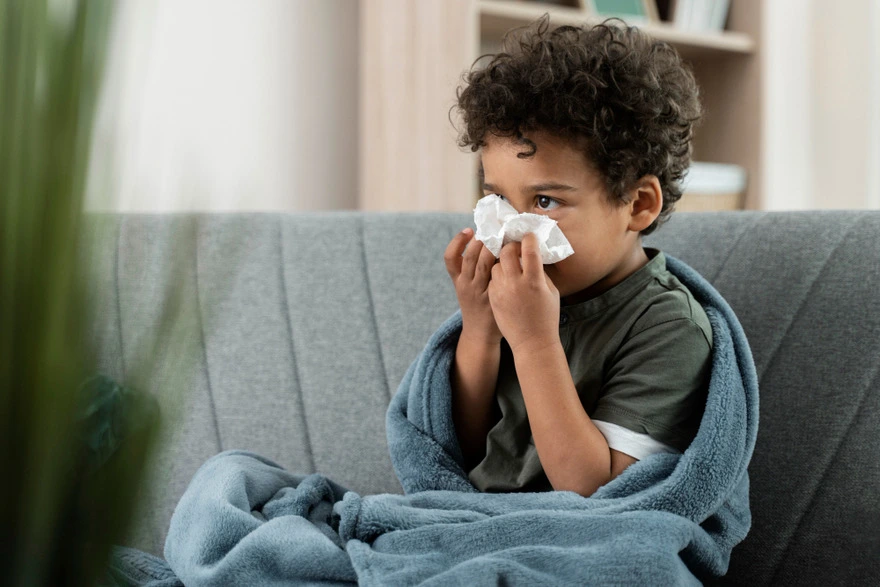
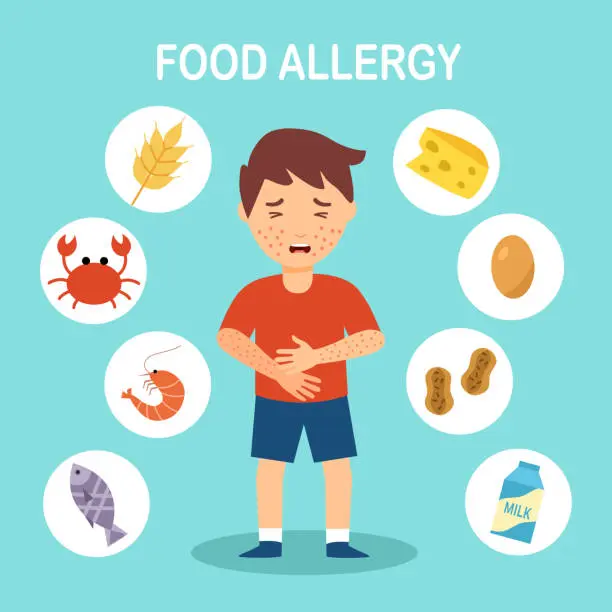
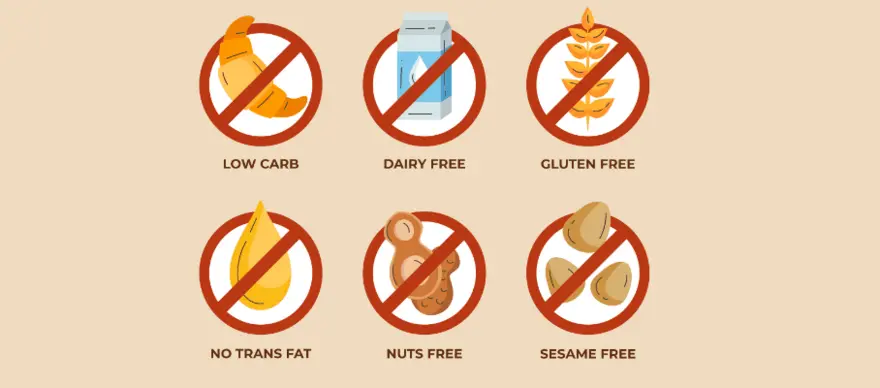

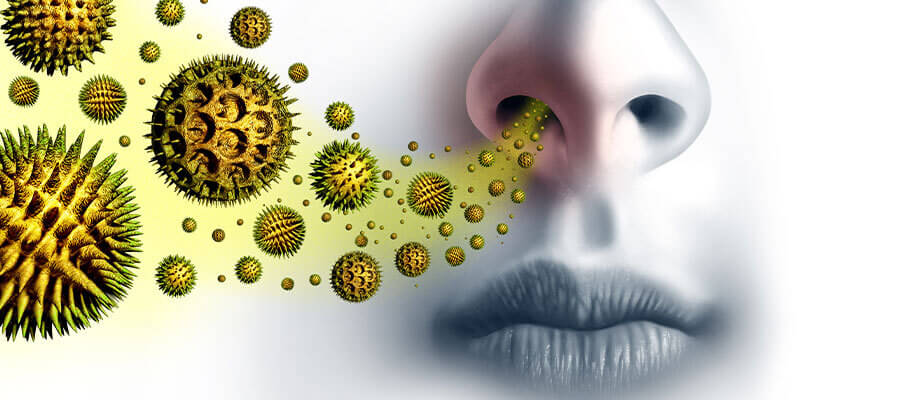


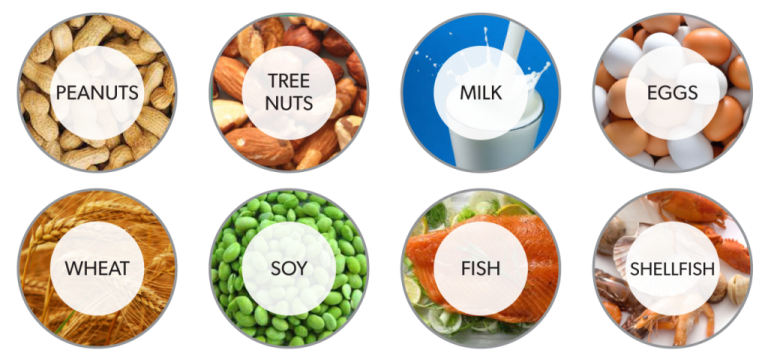






 WhatsApp
WhatsApp